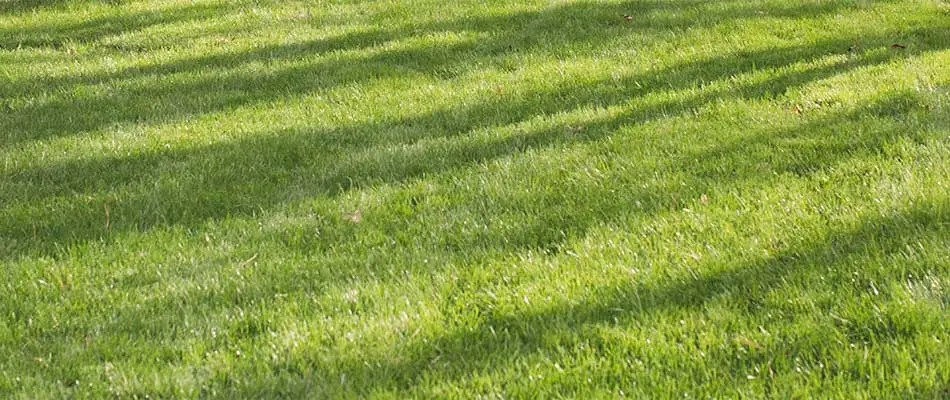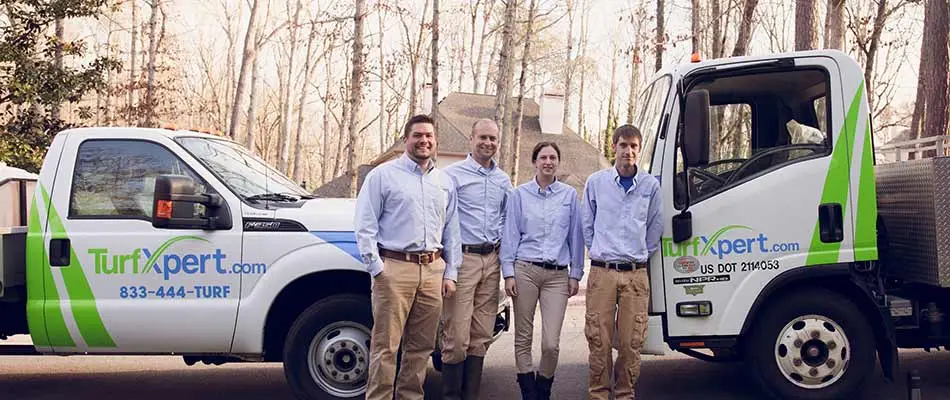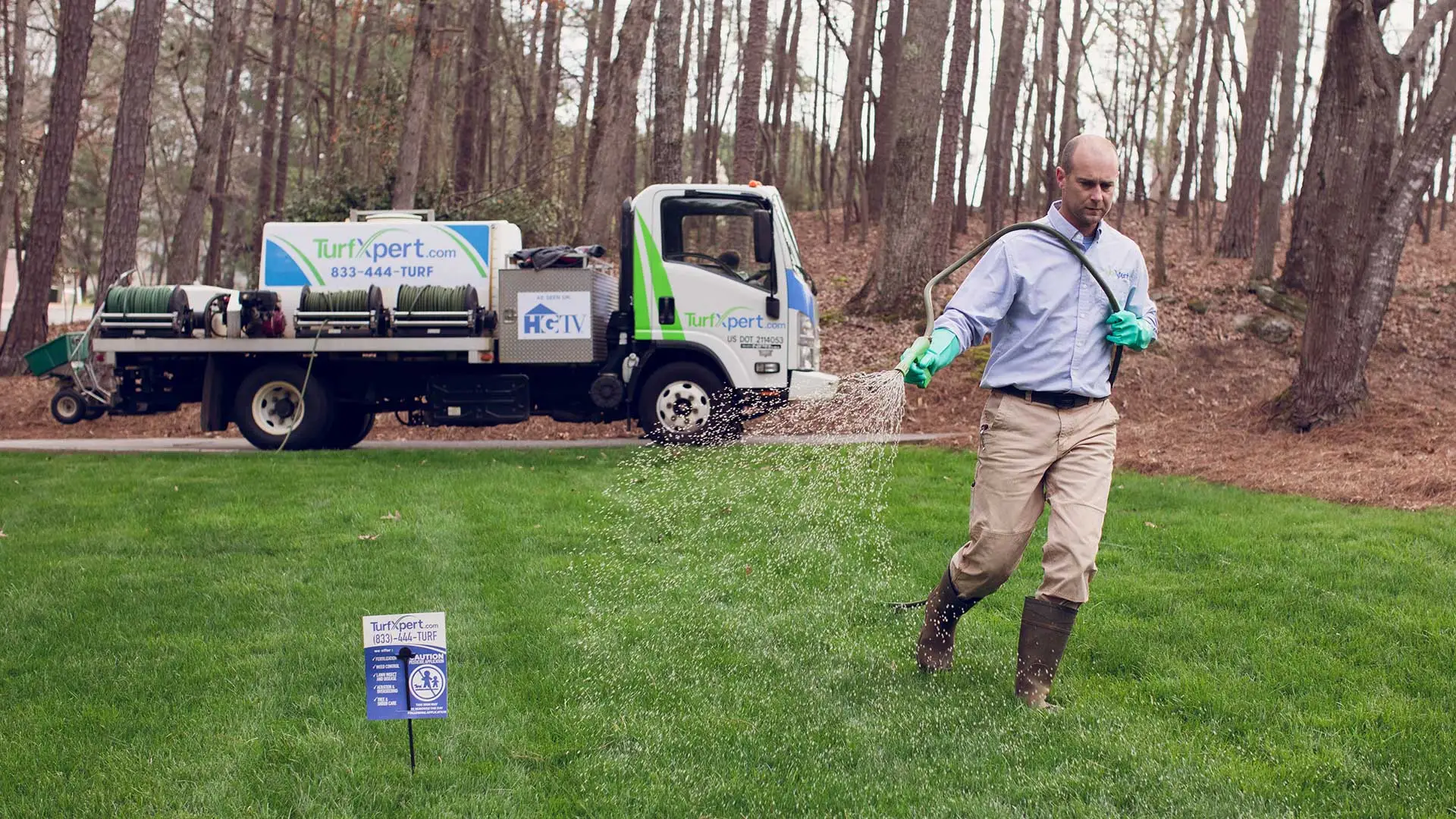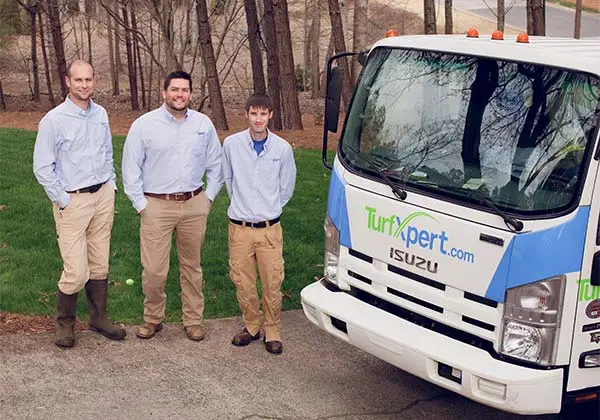All cool-season grasses in Georgia should perform winter fertilization.
Fescue is a cool-season grass that requires yearly winter fertilization services. These kinds of grasses grow differently than warm-season ones and will typically need special treatments performed to keep them in optimal health.
That's why TurfXpert created a seven-step fertilization schedule designed to treat and protect cool-season grasses year-round! Most properties throughout northern Georgia have cool-season grasses, so it's important to regularly maintain your lawn's health and appearance.
Check out how winter fertilization services can help your fescue grass continue to stay healthy and robust, even during the colder months!
Why is winter fertilization so important for fescue grasses?

Cool-season grasses, like fescue, are named this way for a reason. In the fall, cool-season grasses utilize the majority of their nutrients during this time to recover from the stress brought on by the summer weather. It's the only way they can safely survive through the winter. Any stored nutrients from winter fertilization will help the grass rebound quickly in the spring after winter dormancy.
This is why winter fertilization treatments are so crucial for fescue grass. Many are unaware that almost 75% of the total amount of nitrogen grasses need annually is obtained in the fall. Winterizing your lawn is the best way to make sure your cool-season grass receives the correct level of nutrients.

Some winter fertilizers are also high in potassium, which helps increase the cold-tolerance of cool-season grasses.
When is the best time in the fall to apply a winterizer to your fescue lawn?
Steps six and seven of the fertilization schedule involve applying the last two treatments of the year. For cool-season grasses, it's better to have two separate applications.
Round 6 involves using a slow-release fertilizer to encourage the germination of new seeds added to your lawn after overseeding. This will happen around October and November. In round 7, a final winterizer treatment is done in late November or early December to help the fescue grass survive the winter months.
How can winter fertilization help your lawn in spring?
Fescue grass and other plants respond to the weather changes in the fall to start preparing for the winter season. The shorter days and cooler nights cause your lawn to shift their food reserves to the root system so it can better survive the colder months, thereby slowing down new grass growth.
This nutrient shift is the secret to how lawns "wake-up" from their winter dormancy in the spring. Winter fertilization supplies cool-season grass with enough nutrients to store for winter. Your lawn utilizes this stockpile later to accelerate new spring growth so it can come back thicker and lusher than the previous year!
Schedule a professional winter fertilization treatment, so your fescue grass is ready for next spring!

Skipping winter fertilization can create issues with your fescue grass once the spring arrives. You may even find that you need to have extra lawn care services performed to replenish certain areas of your lawn.
The expert team at TurfXpert can help you avoid this by choosing to follow the seven-round fertilization treatment schedule! It's still not too late to sign up for a winterizer treatment, but you'll need to do it soon before the fall schedule fills up!
TurfXpert services residential, commercial, and HOA properties near and around the Atlanta metropolitan area, including Woodstock, Roswell, Alpharetta, and more. Get in touch with a team member by calling (833) 444-8873 today!




Comments (0)
Thanks for your comment!
Thanks for your feedback! Your comments have been successfully submitted! Please note, all comments require admin approval prior to display.
Error submitting comment!
There is a problem with your comment, please see below and try again.